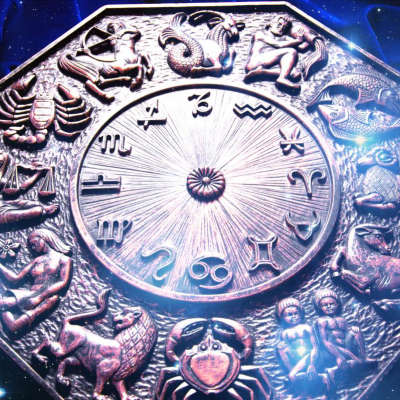How to Become a Lucky Person
Becoming a lucky person isn't just about fortune but the result of determination, positive thinking, and a readiness for change. Learn how to develop these qualities and attract luck into your life.
1 November 2024
Definition of Personal Success and Luck
How to Develop Positive Thinking
The Importance of Goals and Motivation in Achieving Luck
The Role of Networking and Environment
Embracing Risks and Readiness for Change
How to Handle Failures on the Road to Success
The Importance of Intuition in Decision Making
Self-Development as a Key to Luck
How Gratitude Attracts Luck
Planning and Discipline: Foundations of Sustainable Success

Definition of Personal Success and Luck
Personal success and luck are concepts that vary from individual to individual, often influenced by internal desires, external factors, and personal worldviews. For some, success is measured in material wealth, while for others, it is rooted in emotional fulfillment, relationships, or personal growth. Understanding what success means to you is essential, as it lays the foundation for your goals and directs your life choices.
Success is often seen as a combination of effort, talent, and circumstances. From a psychological perspective, it’s important to recognize that success is not always a straight line; it can be nonlinear, requiring persistence and flexibility. Success is about progress, personal satisfaction, and how well your life aligns with your inner values. Whether your definition involves professional accomplishments, inner peace, or something else, knowing this helps clarify your path.
Luck, on the other hand, can feel more elusive, but many believe that it’s not purely random. Astrologically, certain planetary alignments and life cycles are thought to influence periods of good fortune. Psychologically, luck can also be interpreted as a result of positive thinking and openness to opportunity. When you position yourself mentally and emotionally to embrace what comes your way, you become more attuned to recognizing and acting on fortuitous circumstances.
Many who seek clarity on luck turn to intuitive insights, believing that some people are more connected to the subtle energies that guide success. Intuition can be a powerful tool for identifying moments when luck might strike. This sensitivity to life’s rhythms allows one to see opportunity where others may not. From this perspective, both personal success and luck are interconnected, influenced by your inner awareness and external actions.
Psychologists would argue that self-efficacy—belief in your own ability to achieve goals—plays a key role in both success and luck. Those who believe in their capabilities tend to see obstacles as opportunities and are more likely to interpret seemingly random events as fortunate. This belief cultivates a mindset that attracts positive outcomes, as it opens doors to experiences that might otherwise be overlooked.
Astrology adds another layer, suggesting that your natal chart—the alignment of planets at the time of your birth—can give insights into natural tendencies and lucky periods in your life. For example, Jupiter is often associated with expansion and good fortune, while Saturn is connected with lessons and limitations. By understanding these influences, some feel they can navigate their path more effectively.
Beyond psychological and astrological interpretations, luck also intertwines with spirituality and manifestation practices. The belief in the power of thoughts and intentions—that you attract what you focus on—is a popular perspective in both new-age spiritual practices and ancient wisdom traditions. By aligning your energy and mindset, you create an environment where success is more likely to flourish.
Luck doesn’t always manifest as a dramatic windfall. It can be small, everyday moments that accumulate over time. Being aware of these micro-successes helps reinforce a positive relationship with the idea of luck. You start to view even minor achievements as part of a larger pattern of good fortune. This awareness is key to feeling successful on a deeper level, not just in tangible outcomes.
Those who are both successful and "lucky" often combine practical action with openness to life’s mysteries. They set goals and work diligently but remain flexible, allowing room for unexpected developments. This adaptability can create a balance between effort and receptivity, allowing the individual to flow with life rather than trying to control every outcome.
Ultimately, success and luck are both subjective. What feels like success for one person may not for another, and luck can be seen as either serendipity or something you make happen through consistent effort and a positive mindset. The ability to define these terms personally is critical to feeling fulfilled in both your professional and personal life.
In conclusion, personal success and luck are intertwined in ways that go beyond simple achievement. They involve psychological resilience, openness to the unknown, and a willingness to trust both the process and your intuition. By nurturing these qualities, you position yourself to experience life’s richness fully, where both success and luck are natural extensions of your journey.
How to Develop Positive Thinking
Developing positive thinking begins with a conscious shift in mindset, one that requires dedication and self-awareness. In psychology, positive thinking is more than just optimism—it’s the ability to recognize negative thoughts, challenge them, and reframe them in a way that is more constructive. This transformation doesn’t happen overnight, but with practice, it can become a powerful tool for emotional well-being and success.
One of the first steps to cultivating positive thinking is to become aware of your inner dialogue. Often, we’re not even conscious of the habitual negative patterns we reinforce. Start by observing your thoughts without judgment, and recognize when negativity arises. This practice of mindfulness helps you identify thoughts that don’t serve your higher purpose and allows you to redirect your focus to something more uplifting.
Astrologically, your birth chart can reveal tendencies toward certain patterns of thinking. For instance, those with strong Mercury placements may be more analytical and sometimes prone to overthinking, while individuals with a dominant Jupiter influence might naturally lean towards more expansive and positive thoughts. Understanding these astrological influences can help you work with your natural tendencies rather than against them.
Affirmations are a powerful tool used by both psychologists and spiritual practitioners to reshape negative thought patterns. By repeating positive statements, you begin to rewire your brain to focus on what’s possible instead of dwelling on limitations. These affirmations should resonate with your personal goals and values, ensuring they feel authentic and aligned with your path.
Visualization is another technique that bridges psychology and metaphysics. By vividly imagining positive outcomes, you create a mental template for success. This aligns with the law of attraction, which suggests that like attracts like—when you focus on positive outcomes, you invite those experiences into your life. Combining this with practical steps towards your goals enhances the effect.
Developing gratitude is essential to maintaining a positive mindset. Gratitude shifts your focus from what you lack to what you already have, creating a sense of abundance. By practicing gratitude daily, you condition your mind to look for the positive in every situation. This, in turn, generates a deeper connection to your inner self and the world around you, enhancing your sense of luck and opportunity.
From a spiritual perspective, some believe that positive thinking aligns your energy with higher vibrations. In this sense, maintaining positivity is not just a mental practice but a form of energetic alignment with the universe. When you cultivate a positive mindset, you are said to vibrate at a frequency that attracts abundance, love, and success. This practice is common in many spiritual traditions and aligns with the belief that we co-create our reality.
It’s also important to surround yourself with positive influences—people, environments, and experiences that uplift and inspire you. The energy of those around you can significantly impact your thinking. By seeking out mentors, friends, and communities that embody positivity, you create an external environment that reinforces your internal efforts.
Overcoming negative thinking is not about ignoring challenges or difficulties but about approaching them from a place of empowerment. Instead of seeing setbacks as failures, positive thinkers view them as learning opportunities. This perspective not only helps build resilience but also enhances problem-solving abilities, as you’re more likely to approach challenges with a clear, solution-oriented mindset.
Astrologically, transits and planetary alignments may also impact your ability to maintain a positive outlook. For example, during a Saturn transit, you might feel more restricted or pessimistic, but this can also be a time of growth if you recognize the lessons being offered. Understanding these cosmic cycles can provide insight into how to navigate difficult periods while maintaining a positive mindset.
In conclusion, developing positive thinking is a dynamic and ongoing process that involves both mental discipline and spiritual awareness. By combining psychological techniques like mindfulness, affirmations, and visualization with a deeper understanding of astrological influences and energetic alignment, you create a holistic approach to cultivating positivity in your life. Over time, this practice not only enhances your personal well-being but also opens doors to greater opportunities and success.
The Importance of Goals and Motivation in Achieving Luck
Goals and motivation are fundamental components in the pursuit of luck. Without clear goals, it is difficult to focus your energy or align your actions with the opportunities the universe presents. Setting specific, meaningful goals gives you direction and purpose, creating a framework within which luck can flourish. In psychology, goals are seen as a crucial part of self-regulation, helping individuals steer through challenges with clarity and determination.
From a metaphysical perspective, goals serve as an anchor for your intentions. When you set a goal, you send out a signal to the universe about what you desire. This focused intention creates a magnetic field that can attract favorable circumstances. The clearer and more defined your goals are, the stronger your magnetic pull becomes, allowing you to draw luck and success into your life.
Motivation is the driving force that propels you toward achieving your goals. It is often said that luck favors the prepared, and motivation is what ensures you are always ready to act when opportunity strikes. Astrologically, motivation can be linked to planetary influences like Mars, which governs action and drive. Understanding your natal Mars placement can help you tap into your intrinsic motivation and use it to fuel your journey toward your goals.
Luck doesn’t just appear out of nowhere; it often requires perseverance and a consistent application of effort. Goals give you something to work towards, but motivation ensures that you maintain momentum, even when the path becomes difficult. Without motivation, goals remain distant dreams, while with motivation, they become achievable realities. The interplay between goals and motivation is what ultimately manifests luck in your life.
Astrologers often note that luck is cyclical, influenced by planetary transits and phases. During periods of favorable alignments, you may feel naturally more motivated and energized to pursue your goals. However, during challenging times, it’s essential to rely on inner motivation to keep pushing forward. By understanding the cosmic rhythm of your life, you can maximize periods of growth and adapt during phases of difficulty.
Setting goals that align with your higher purpose is essential for long-term success and happiness. When your goals resonate with your deeper values, they become a source of intrinsic motivation, which is far more powerful than external rewards. This internal drive not only increases your chances of achieving your goals but also invites luck to support you along the way.
Visualization plays a critical role in goal achievement and motivation. When you clearly visualize your desired outcome, you strengthen your resolve and motivation to bring that vision to life. Many successful people, from athletes to entrepreneurs, use visualization as a tool to stay focused and energized. This practice also taps into the law of attraction, where mentally rehearsing success creates a magnetic pull for luck to materialize.
Astrologically, your birth chart can reveal where your natural strengths lie, helping you set goals that are aligned with your unique talents and abilities. For instance, someone with a strong Venus placement may be naturally gifted in creative or artistic endeavors, and aligning goals in these areas can increase the likelihood of success. Recognizing and working with these cosmic influences can help channel your motivation in the right direction.
Motivation must be nurtured regularly to maintain its potency. Daily practices like affirmations, meditation, or connecting with your spiritual side can help you stay in tune with your goals and keep your motivation high. The energy you put into sustaining your motivation acts like a signal to the universe that you are serious about achieving your goals, making you a magnet for luck.
In the end, luck is the result of preparation meeting opportunity. By setting clear goals and cultivating the motivation to achieve them, you create the conditions for luck to enter your life. When combined with an understanding of your astrological influences, this approach provides a powerful foundation for personal success and fulfillment. The relationship between goals, motivation, and luck is dynamic and ever-evolving, but with persistence, you can shape your destiny in ways that feel both guided and fortunate.
The Role of Networking and Environment
Networking and environment play a pivotal role in shaping not only your professional success but also your personal growth. The people you surround yourself with act as mirrors and guides, reflecting your aspirations and influencing your energy. In psychology, the importance of social networks is well-documented: they provide emotional support, resources, and opportunities. From an astrological perspective, the 11th house in your natal chart governs friendships, community, and alliances, highlighting the cosmic significance of who you connect with.
In metaphysical terms, your environment and the people around you carry energetic vibrations that can either uplift or hinder your path to success. Surrounding yourself with like-minded individuals who share your values and goals can amplify your frequency, creating a magnetic field that attracts luck and opportunities. This is why many spiritual practices emphasize cleansing your space and being mindful of who you invite into your life—because the energy of your environment directly impacts your personal and professional trajectory.
From a psychological standpoint, networking provides a pathway to new opportunities. Whether through formal professional settings or casual social interactions, the connections you make open doors that may have otherwise remained closed. Luck, in many ways, is a product of being in the right place at the right time, and networking increases your chances of those serendipitous moments. People with larger, diverse networks often find themselves exposed to opportunities and information that others may not have access to.
Astrologically, the placement of planets like Jupiter and Uranus can influence your luck in networking. Jupiter, the planet of expansion and abundance, blesses those who are open to connecting with others, bringing beneficial relationships into their lives. Uranus, the planet of sudden change and innovation, often plays a role in unexpected yet fortunate connections, helping you form bonds with people who propel you toward your destiny. Understanding these influences can help you navigate your networking with greater awareness and intention.
A supportive environment is just as crucial as networking. Your physical and emotional surroundings deeply affect your energy levels, focus, and motivation. Feng Shui, for instance, is an ancient practice that aligns your environment to promote harmony and balance, allowing the flow of energy—or "chi"—to move freely. An organized, clean, and energetically balanced space creates the ideal conditions for luck to flow into your life.
In professional settings, networking is often viewed as a key element to success, but it goes beyond exchanging business cards. Genuine connections, built on mutual trust and respect, foster long-term growth and support. These relationships can serve as mentors, collaborators, or even catalysts for important changes in your life. Luck is not just about random chance; it's often about nurturing the right relationships and being open to collaboration.
Astrologers often point out the importance of the Moon's position in your chart when considering your emotional connections and networking. The Moon governs emotions, intuition, and how you relate to others on a personal level. By understanding your Moon sign, you can gain insight into the types of environments and people you naturally feel drawn to and how they can support—or stifle—your growth. Aligning your networking efforts with these cosmic insights can enhance your ability to connect with people who resonate with your life path.
The energy of your environment also extends to the virtual world. In the modern age, online communities and social media platforms have become extensions of our physical networks. The energy you invest in these spaces can either drain or invigorate you. Being mindful of the digital spaces you frequent and the people you interact with can help you maintain a positive flow of energy, allowing luck to reach you in unexpected ways.
On a spiritual level, the Law of Attraction teaches that "like attracts like." If you want to attract luck and success, it's essential to place yourself in environments that reflect the energy of those outcomes. This could mean surrounding yourself with successful, driven individuals, or it could involve immersing yourself in environments that inspire creativity and passion. Your external surroundings and internal energy must align for luck to find its way into your life.
Ultimately, networking and environment are intertwined forces that shape your journey toward success. Whether through cosmic alignment or deliberate action, the people you meet and the spaces you inhabit can either propel you toward your goals or hold you back. By carefully curating your connections and cultivating environments that resonate with your highest aspirations, you position yourself to receive the luck and opportunities that are waiting for you.
Embracing Risks and Readiness for Change
Embracing risks and being ready for change are essential components of personal growth and success. In psychology, the willingness to take risks is often associated with traits like resilience and adaptability. Without stepping out of your comfort zone, you can miss the opportunities that lead to growth, both personally and professionally. Astrologically, certain planetary transits, such as Uranus or Pluto, can signal periods in life where you are called to embrace transformation, even if it feels uncertain or uncomfortable.
On a spiritual level, the path to success and luck is rarely linear. It requires accepting that risks are a part of the journey, and that avoiding them out of fear may block your potential. From a metaphysical perspective, taking risks can be viewed as an alignment with the flow of the universe. When you embrace change, you signal to the cosmos that you are ready for the new opportunities it brings. In the tarot, the Fool card represents this leap of faith—a willingness to walk into the unknown, trusting that the universe will provide.
Astrology highlights that people born under certain signs, like Aries or Sagittarius, are naturally inclined to take risks, driven by their need for adventure and growth. But even those less naturally predisposed to risk-taking can cultivate this ability. It begins with understanding that risk is not synonymous with recklessness. Instead, it’s a calculated step toward a new direction, often requiring courage and inner strength. Recognizing this helps shift your mindset from fear to excitement.
In personal development, readiness for change often comes from an inner drive for something more. When you're ready for transformation, you open yourself to new experiences and growth opportunities that might not have been visible before. Psychologically, this readiness can be developed through building a growth mindset—where challenges are seen as learning opportunities rather than obstacles. Learning to welcome uncertainty instead of fearing it allows you to handle transitions with grace.
For those attuned to their astrological charts, moments of significant change may be indicated by aspects involving Uranus or Saturn, planets associated with disruption and discipline, respectively. These periods may bring unexpected events, but they are also opportunities for growth and reinvention. Embracing these changes rather than resisting them can set you on a path toward a future that aligns with your higher purpose.
Taking risks often requires letting go of what no longer serves you, which can be one of the most challenging aspects of personal development. It may involve releasing old habits, outdated beliefs, or even people who are holding you back. In the spiritual realm, this is akin to shedding layers of your old self to make room for new energy and opportunities. The act of releasing can be uncomfortable but is often the precursor to significant breakthroughs.
Another key element in embracing risks is understanding timing. Astrologers often speak about the importance of divine timing, where everything falls into place when it’s meant to. Whether you're considering a career change, a new relationship, or any major life decision, being attuned to the timing of the universe can help you navigate the risks with more confidence. Meditation, mindfulness, and even looking at your astrological transits can help you understand when the time is ripe for change.
From a psychological perspective, it’s important to balance your risk-taking with self-awareness. Understanding your own limits and knowing when to push forward versus when to hold back is crucial. Successful people often take calculated risks—they gather information, assess the potential outcomes, and then make a bold move. This type of risk-taking is not about acting on impulse, but about making informed decisions that can lead to greater success.
Change, especially when paired with risk, can feel destabilizing. But it’s important to remember that growth rarely happens in stable conditions. Much like a plant that must break through the soil to reach the sunlight, you too must push through discomfort to achieve your goals. This metaphor highlights the spiritual aspect of transformation—the need to evolve, adapt, and rise above challenges.
Ultimately, embracing risks and being ready for change is about trusting both yourself and the larger forces at play in your life. It’s about having faith that, while you may not control everything, you do have control over how you respond to what comes your way. Whether guided by your intuition, astrological insights, or a deep psychological understanding of your strengths and desires, stepping into the unknown with confidence can lead to greater rewards than you ever imagined.
How to Handle Failures on the Road to Success
Handling failures on the road to success is an essential skill that can significantly shape your journey. From a psychological perspective, failures are not just setbacks; they are opportunities for learning and growth. Each failure carries valuable lessons that can refine your skills and fortify your resolve. Instead of viewing failures as negative outcomes, it is crucial to reframe them as stepping stones toward your ultimate goals. This shift in mindset can be incredibly liberating and can help you maintain your motivation in challenging times.
Astrologically, certain planetary transits can highlight periods of struggle and obstacles. For example, Saturn is often associated with lessons learned through hardship. Understanding that these phases are part of a larger cosmic rhythm can provide comfort and perspective. When you encounter failures, recognizing them as universal experiences can help you feel less isolated. Everyone, at some point, faces challenges that test their determination and resilience.
Moreover, embracing failure involves cultivating a healthy relationship with your self-esteem. It is essential to separate your self-worth from your achievements. When you tie your identity to success, every failure feels like a personal attack. Instead, focus on building a sense of self that is independent of your accomplishments. This foundation can make it easier to bounce back from setbacks and foster a growth mindset, which views challenges as opportunities for improvement.
In handling failures, it's also beneficial to practice self-compassion. Treat yourself with the same kindness you would offer a friend facing similar challenges. Acknowledging your feelings of disappointment is essential, but it’s equally important not to dwell on them. Allow yourself to grieve the loss of your expectations, and then gently guide yourself toward learning from the experience. This process can help you cultivate resilience and emotional strength.
Astrologically, the concept of “returning to the stars” reminds us that life is cyclical. Just as the planets experience phases of retrograde, our journeys are marked by periods of reflection and recalibration. Acknowledging that failures can lead to moments of introspection allows you to grow in ways you might not have anticipated. These times of reflection can be potent catalysts for transformation and deeper understanding of your path.
Another key aspect of handling failures is to develop a proactive approach. Instead of becoming paralyzed by what went wrong, focus on what you can control. Create an action plan that outlines specific steps you can take to address the failure. This structured approach can help shift your focus from despair to action, empowering you to navigate through difficulties with clarity and intention. Utilizing tools such as journaling or consulting with mentors can provide insights into your next steps.
From a psychological viewpoint, it is essential to engage in constructive self-talk after experiencing failure. Challenge negative thoughts that arise and replace them with affirmations that reinforce your ability to overcome challenges. This practice is not about ignoring your feelings but rather reframing them to foster a healthier mindset. Over time, this shift in internal dialogue can lead to greater resilience and an improved outlook on future endeavors.
Failure also serves as a crucial element in the process of self-discovery. Each setback can provide clarity about your passions, values, and aspirations. Use these experiences to refine your goals and adjust your trajectory as needed. This adaptive approach allows you to embrace change while remaining aligned with your true self. As you gain insights from your failures, you may discover new avenues that resonate more deeply with your core values.
Moreover, surrounding yourself with supportive individuals can greatly influence how you navigate failures. Building a network of mentors, friends, and like-minded individuals creates a safety net during challenging times. These connections can provide encouragement and perspective, reminding you that setbacks are a natural part of the journey. When you share your struggles with others, you not only lighten your emotional load but also open yourself to new perspectives and advice.
Ultimately, embracing failure is about recognizing it as an integral part of the path to success. Each setback offers a unique opportunity for growth, transformation, and deeper understanding of yourself and your journey. By fostering a mindset that values resilience, adaptability, and self-compassion, you can learn to navigate the road ahead with confidence. Remember that success is not solely defined by the absence of failure but by your ability to rise after each fall, stronger and more determined than before.
The Importance of Intuition in Decision Making
Intuition is often described as a gut feeling or an inner voice guiding us in decision-making. From a psychological standpoint, intuition represents a complex interplay between our subconscious experiences and emotions. It is the culmination of accumulated knowledge, life experiences, and subtle cues that our conscious mind may overlook. By tapping into this reservoir of insights, we can enhance our decision-making processes and navigate life's uncertainties with greater confidence.
Astrologically, intuition is often linked to the water signs—Cancer, Scorpio, and Pisces. These signs are known for their emotional depth and sensitivity, which can provide valuable insights into intuitive thinking. Individuals with strong placements in these signs may find it easier to connect with their inner wisdom and rely on their instincts when making choices. This astrological perspective highlights that intuition is not merely a mystical experience; it is also grounded in our emotional and psychological makeup.
Incorporating intuition into decision-making involves learning to listen to that inner voice and recognizing its validity. Many people dismiss their intuitive feelings as irrational or unfounded, but this perspective can lead to missed opportunities and insights. To foster trust in your intuition, practice mindfulness and cultivate self-awareness. These practices help create a mental space where your intuitive thoughts can surface without interference from external pressures or societal expectations.
One effective way to enhance intuitive decision-making is to create a regular practice of reflection. Spend time journaling or meditating on the choices you face, allowing your subconscious to process the information without judgment. Over time, this practice can sharpen your intuitive abilities and make you more attuned to the subtle signals your body and mind send you. The clearer your mind becomes, the more accurately you can interpret intuitive nudges, making them a powerful tool in your decision-making arsenal.
Intuition often emerges in moments of clarity, particularly during times of stress or uncertainty. By embracing these moments and reflecting on your feelings, you can identify patterns that signal what feels right for you. In astrological terms, periods of heightened emotional awareness can correlate with lunar phases or specific planetary alignments, creating fertile ground for intuitive insights. Recognizing these patterns can empower you to anticipate when your intuition may be particularly strong.
Moreover, intuition plays a critical role in risk assessment. When faced with decisions that carry potential consequences, our gut feelings often guide us toward the most favorable outcome. Developing a keen sense of intuition allows us to navigate these risks with greater ease and confidence. Engaging in activities that foster intuition, such as creative expression or nature immersion, can enhance your ability to assess risks and make informed choices.
It's important to recognize that intuition should complement rational thinking, not replace it. While intuition provides valuable insights, grounding your decisions in logic and facts is equally important. Balancing these two approaches creates a more holistic decision-making process that acknowledges both emotional intelligence and analytical reasoning. This synergy allows you to make choices that resonate with your inner self while remaining pragmatic.
In addition, understanding your own biases and emotional triggers can enhance your intuitive decision-making. By examining your thought patterns and emotional responses, you can differentiate between genuine intuitive feelings and those influenced by fear or external pressures. This self-awareness creates a clearer channel for intuitive insights, ensuring that your decisions align with your true values and aspirations.
Furthermore, developing a strong support system can enhance your intuition. Sharing your thoughts and feelings with trusted friends or mentors can provide different perspectives, helping you to see situations more clearly. They can offer feedback that can either validate your intuitive feelings or challenge you to reflect more deeply. Surrounding yourself with supportive individuals fosters an environment where intuitive insights can flourish and be expressed.
Ultimately, recognizing the importance of intuition in decision-making empowers you to navigate life's complexities with greater confidence. By honing your intuitive abilities, you can access a wealth of inner wisdom that guides your choices and aligns with your true self. As you learn to trust and embrace your intuition, you create a more authentic and fulfilling path toward personal success and happiness.
Self-Development as a Key to Luck
Self-development is often seen as the foundation upon which personal success and, consequently, luck are built. At its core, self-development involves a commitment to continuous improvement in various aspects of life, including emotional intelligence, skills acquisition, and personal growth. By investing in oneself, individuals create an environment ripe for opportunity, where luck can thrive.
The journey of self-development begins with self-awareness, which is the ability to recognize and understand one’s own thoughts, emotions, and behaviors. This awareness allows individuals to identify their strengths and weaknesses, ultimately guiding them toward areas that require attention and improvement. Through introspection and reflection, one can pinpoint the aspects of life that may be hindering their path to success and take proactive steps to address them.
Astrologically, the position of certain planets can influence an individual’s capacity for self-development. For instance, the placement of Saturn often signifies lessons and challenges that, when embraced, lead to personal growth. Understanding these astrological influences can provide insights into the types of self-development work that might resonate most deeply at various points in life. By aligning self-improvement efforts with astrological cycles, individuals can enhance their capacity for growth and transformation.
Engaging in self-development also means setting clear, achievable goals. These goals act as beacons, guiding one’s actions and decisions. When individuals have a clear vision of what they want to achieve, they are more likely to recognize and seize opportunities that align with their aspirations. The process of goal-setting fosters a sense of purpose and motivation, two essential components in attracting luck.
Another essential aspect of self-development is cultivating resilience. Life is inherently unpredictable, and setbacks are inevitable. Resilience allows individuals to bounce back from challenges and view failures as opportunities for learning rather than as insurmountable obstacles. By developing a resilient mindset, individuals create a fertile ground for luck, as they are more likely to persevere and adapt in the face of adversity.
Additionally, embracing lifelong learning is a crucial element of self-development. In an ever-changing world, the ability to learn and adapt is paramount. Whether through formal education, personal reading, or experiential learning, continuously expanding one’s knowledge and skills increases confidence and capability. This, in turn, opens doors to new opportunities and experiences, aligning with the notion that luck favors the prepared.
Self-development also encompasses emotional growth, particularly in understanding and managing emotions. Emotional intelligence enables individuals to navigate social situations effectively, build meaningful relationships, and enhance their decision-making skills. Cultivating emotional intelligence can lead to more harmonious interactions, creating a network of support and goodwill that further enhances one’s sense of luck.
Another vital component of self-development is cultivating a positive mindset. A positive attitude can significantly impact one’s perception of opportunities. When individuals maintain an optimistic outlook, they are more likely to notice and act upon opportunities that may otherwise go unnoticed. This positivity not only attracts good fortune but also creates a ripple effect, inspiring those around them to foster a similar outlook.
Moreover, engaging with a supportive community plays a crucial role in self-development. Surrounding oneself with like-minded individuals who share similar goals and aspirations fosters an environment of encouragement and accountability. This supportive network can provide valuable feedback, insights, and opportunities that can contribute to personal growth and the attraction of luck.
Ultimately, self-development is a lifelong journey that intertwines with the concept of luck. As individuals commit to continuous improvement and self-discovery, they create a dynamic where opportunities can flourish. By understanding the interplay between self-development and luck, one can unlock a pathway to personal success that is both fulfilling and transformative.
How Gratitude Attracts Luck
Gratitude is a powerful emotion that can significantly influence our perception of luck and abundance in life. When individuals practice gratitude, they shift their focus from what they lack to what they have, cultivating a mindset that recognizes and appreciates the positive aspects of life. This shift in perspective can create a ripple effect, attracting more favorable experiences and opportunities.
The act of expressing gratitude can trigger a physiological response in the brain, releasing neurotransmitters like dopamine and serotonin that promote feelings of well-being. This biochemical reaction reinforces a positive outlook, enabling individuals to approach challenges with resilience and optimism. As this positivity radiates outward, it can draw in favorable circumstances and serendipitous encounters, often perceived as "luck."
Astrologically, gratitude resonates with higher vibrations that align with abundance and prosperity. When individuals acknowledge their blessings, they harmonize their energy with the universe, opening channels for positive experiences to flow into their lives. Certain planetary alignments may amplify this effect, making it essential to be aware of how cosmic influences interact with personal practices of gratitude.
Moreover, gratitude fosters stronger connections with others. When individuals express appreciation, it strengthens relationships, enhancing social bonds and creating networks of support. These connections can lead to unexpected opportunities, collaborations, and partnerships that individuals may not have encountered otherwise. In this sense, gratitude acts as a magnet for luck, drawing people and experiences that contribute to personal and professional growth.
Practicing gratitude also encourages mindfulness, allowing individuals to remain present and engaged in their lives. This awareness enables people to recognize and seize opportunities as they arise. When one is fully present, they are more likely to notice subtle cues and signals that might otherwise go unnoticed. This heightened awareness can create a fertile ground for luck to flourish, as individuals become adept at recognizing the serendipitous moments life offers.
Furthermore, gratitude helps mitigate the impact of negative experiences. When individuals focus on the positive aspects of their lives, they become more resilient to setbacks. This resilience allows them to rebound from challenges, creating a more favorable outlook for future endeavors. By reframing failures as learning opportunities, individuals cultivate an environment where luck can thrive, as they are more willing to take risks and embrace new challenges.
In addition, practicing gratitude can lead to improved mental and emotional health. Research has shown that individuals who regularly express gratitude experience lower levels of stress and anxiety, leading to enhanced well-being. This improved mental state can increase one's capacity to attract luck, as individuals are more open to new experiences and opportunities when they feel balanced and centered.
Creating a gratitude practice, such as keeping a gratitude journal or engaging in daily reflections, can help individuals cultivate this important quality. By dedicating time to acknowledge and appreciate the positive aspects of life, they reinforce a habit that attracts more positivity and luck. This practice not only benefits the individual but also radiates outward, inspiring others to embrace a similar mindset.
Lastly, gratitude is deeply intertwined with a sense of purpose. When individuals recognize the value of their experiences, they gain a clearer understanding of their goals and aspirations. This clarity enables them to align their actions with their intentions, creating a powerful momentum that can attract luck and opportunity. By embracing gratitude as a guiding principle, individuals can navigate their lives with a sense of direction and fulfillment.
In essence, gratitude serves as a powerful tool for attracting luck and abundance. By fostering a mindset of appreciation, individuals can reshape their experiences and draw in positive opportunities that enhance their lives. Embracing gratitude not only transforms personal perspectives but also cultivates a supportive environment in which luck can flourish.
Planning and Discipline: Foundations of Sustainable Success
Planning and discipline are two critical components that serve as the bedrock of sustainable success. Individuals often embark on journeys to achieve their goals, but without a structured plan and the discipline to follow through, even the most ambitious aspirations can falter. Effective planning begins with a clear vision of what success looks like for an individual, allowing them to chart a course toward their desired outcomes.
Establishing specific, measurable, achievable, relevant, and time-bound (SMART) goals can provide a framework for this planning process. These criteria ensure that objectives are not only aspirational but also realistic and attainable. By breaking down larger goals into smaller, actionable steps, individuals create a roadmap that guides them toward success. This structured approach enhances motivation and makes the journey feel less daunting, fostering a sense of accomplishment as milestones are reached.
Discipline, on the other hand, is the driving force that sustains individuals through the ups and downs of their pursuits. It involves the commitment to consistently adhere to the plan, even when faced with challenges or distractions. Developing discipline is akin to cultivating a muscle; it requires regular practice and reinforcement. This commitment helps individuals resist the temptation to stray from their path and reinforces their dedication to their goals.
Moreover, the integration of mindfulness into planning can enhance the effectiveness of discipline. Mindfulness encourages individuals to stay present and aware of their thoughts and feelings, allowing them to recognize when they may be deviating from their plan. This heightened awareness can empower individuals to make conscious choices that align with their goals, fostering a sense of control over their actions and decisions.
Incorporating regular reviews and adjustments into the planning process is also crucial. Life is dynamic, and circumstances may shift unexpectedly, necessitating a reevaluation of goals and strategies. By remaining flexible and open to change, individuals can adapt their plans without losing sight of their ultimate objectives. This adaptability fosters resilience, enabling them to navigate obstacles with grace and confidence.
Astrologically, understanding one’s personal cycles and influences can also inform effective planning. Certain planetary alignments may enhance productivity and focus, making specific periods more favorable for pursuing particular goals. By aligning their efforts with these cosmic rhythms, individuals can optimize their discipline and increase the likelihood of success.
Accountability is another vital element in the interplay between planning and discipline. Sharing goals with trusted friends, mentors, or coaches can create a support system that encourages commitment and progress. This external accountability can motivate individuals to stay on track, as the social aspect of sharing goals often instills a sense of responsibility. Celebrating achievements together fosters a sense of community and reinforces the positive behaviors necessary for sustained success.
Furthermore, establishing a routine can significantly bolster discipline. Routines provide structure and predictability, reducing decision fatigue and making it easier to maintain focus on the tasks at hand. By incorporating consistent practices into daily life, individuals can cultivate habits that align with their goals. These habits, when nurtured over time, contribute to a strong foundation for sustainable success.
In addition to routine, prioritization is essential for effective planning. Individuals often juggle multiple responsibilities, making it crucial to identify which tasks align most closely with their goals. By prioritizing high-impact activities, they can allocate their time and energy more effectively, ensuring that they are making meaningful progress toward their objectives.
Ultimately, planning and discipline are intertwined aspects of achieving sustainable success. When individuals invest time in thoughtful planning and commit to disciplined execution, they lay a strong foundation for their aspirations. This combination not only enhances the likelihood of achieving goals but also cultivates a sense of fulfillment and satisfaction along the journey.





